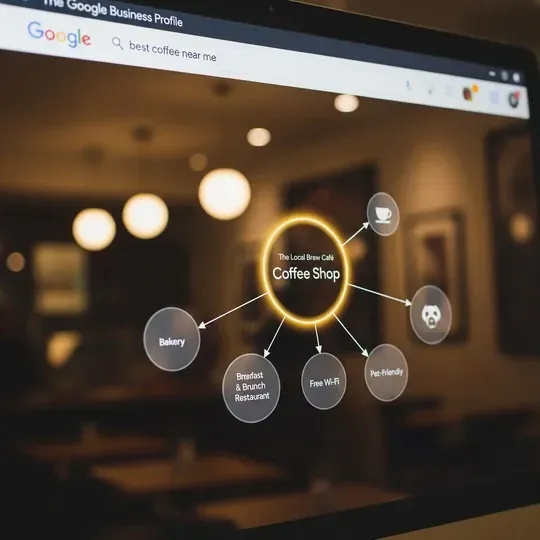
Google Business Profiles Categories vs sub-categories. The is vs has. - LPR Audit LLC
The Single Most Important Word on Your Google Profile
On your entire Google Business Profile, one word carries more weight than any other. It’s not in your business name or your description. It’s your primary category.
Most businesses treat this as a simple label. They pick something that feels close enough and move on. This is a strategic blunder.
Your primary category is the single most critical factor in your local search ranking.1 It’s the foundation of your visibility. Getting it right makes you visible to the right customers. Getting it wrong makes you invisible.
It’s time to treat this decision with the strategic weight it deserves.
The Golden Rule: Declare What You ARE, Not What You HAVE
Google has a simple but non-negotiable rule for categories. It’s the “IS vs. HAS” doctrine. Your categories should describe what your business is, rather than simply listing its products, services, or amenities.
This is where most businesses fail.
A motel with a swimming pool is a "Motel." It has a swimming pool. Choosing "Swimming Pool" as a category is a mistake.4
A fast-food restaurant that sells milkshakes is a "Fast Food Restaurant." It has desserts. "Dessert Restaurant" is the wrong identity.
A grocery store with an in-house pharmacy is a "Grocery Store." "Pharmacy" is a department within it and should be a secondary category.

Why is this so critical? Because your primary category is your digital DNA. It tells Google your core identity. Misrepresenting that identity creates confusion, and Google’s algorithm punishes confusion by lowering your rank.
Primary vs. Secondary: The General and The Specialists
Your Google profile is a team of ten. You have one General (your primary category) and up to nine Specialists (your secondary categories).6 Each has a distinct mission.
Your Primary Category is Your Core Mission.
This is your identity. It carries the most weight and has the biggest impact on the keywords you rank for. It must be the most specific and accurate label for your business as a whole. A dental practice that only serves children should choose "Pediatric Dentist," not the broader "Dentist." Specificity wins.
Secondary Categories are Your Tactical Advantage.
These are your specialists. They don’t define your core identity, but they highlight other crucial services you offer. They allow you to show up in more specific, long-tail searches. For the "Pediatric Dentist," secondary categories like "Orthodontist" or "Cosmetic Dentist" capture customers looking for those exact services.
While Google’s official advice is to use the "fewest number of categories" necessary, seasoned strategists disagree. The winning move is to use as many of the ten slots as you can, as long as every single one accurately describes a service you are an expert in.
The Playbook for Category Dominance
Choosing your categories shouldn't be a guess. It should be a calculated decision based on market intelligence.
Analyze the Winners: Success leaves clues. Search for your most important service and see which competitors are in the top three spots. Identify the primary category they are all using. That’s the category Google has already decided is most relevant.
Think Like Your Customer: Brainstorm the exact words and phrases a customer would use to find you.2Use keyword research tools to see which of those terms have actual search volume. Align your categories with real-world demand.
Unlock Your Profile's Full Power: Your primary category does more than just help you rank. It unlocks special features on your profile. Restaurants get menu and online ordering links. Salons and spas get a "Booking" button.5 The right category transforms your profile from a static listing into a dynamic tool for customer conversion.
Your Next Move
Your Google Business Profile categories are not a "set it and forget it" task. They are a strategic asset that requires deliberate action.
Go to your profile right now. Look at your primary category. Does it declare, with absolute clarity, what your business is? Look at your secondary categories. Are you using every available slot to showcase your specializations? Even better go and get your LPR Audit report that will tell you exactly what your competitors does.
This isn't just housekeeping. This is a strategic imperative. Make the change.
